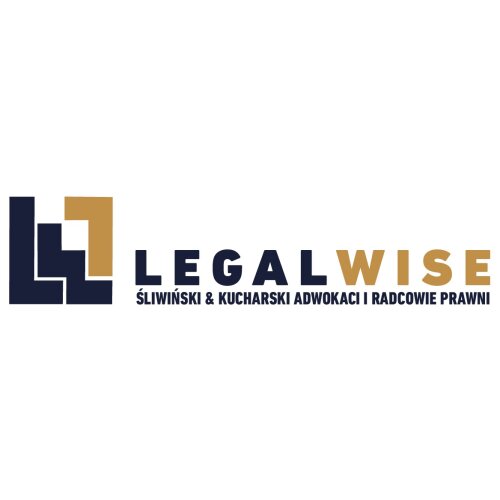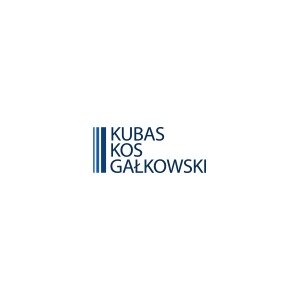Best Office Solutions Lawyers in Warsaw
Share your needs with us, get contacted by law firms.
Free. Takes 2 min.
List of the best lawyers in Warsaw, Poland
About Office Solutions Law in Warsaw, Poland
Office Solutions Law in Warsaw, Poland encompasses various legal aspects related to establishing, managing, and operating office spaces within the city. Given Warsaw's status as a major business hub in Central Europe, the city offers a dynamic environment where businesses of all sizes seek office space solutions that align with their operational needs. Legal considerations in the field of Office Solutions may involve leasing agreements, compliance with local zoning and building codes, labor laws concerning office environments, and regulations for shared or coworking spaces.
Why You May Need a Lawyer
Legal assistance in the field of Office Solutions may be necessary for several reasons. A business owner looking to lease a new office space may need help understanding the lease agreement terms. Disputes between landlords and tenants over property maintenance, renovations, or contract breaches could also require legal intervention. Additionally, when establishing an office space, compliance with local health and safety regulations and adaptations for individuals with disabilities may necessitate legal guidance. Businesses utilizing coworking spaces might seek legal counsel for service contracts and data protection agreements.
Local Laws Overview
Several local laws and regulations in Warsaw are particularly relevant to Office Solutions. The Polish Civil Code governs lease agreements, stipulating terms for rental periods, contract termination, and tenant and landlord obligations. Warsaw's local zoning laws dictate where office spaces can be located, impacting new businesses seeking locations for their headquarters. Building regulations ensure office spaces meet safety and accessibility standards. Additionally, labor laws in Poland enforce conditions for office environments, including workspace size, lighting, and emergency protocols. Familiarity with these regulations is crucial for anyone involved in property or office management to ensure compliance and avoid legal conflicts.
Frequently Asked Questions
What are the key elements of an office lease agreement in Warsaw?
Office lease agreements in Warsaw typically include terms regarding the duration of the lease, rental price, deposit requirements, property maintenance, and conditions for terminating the lease. Parties should also be aware of clauses related to property modifications and subleasing.
What zoning laws affect office locations in Warsaw?
Zoning laws in Warsaw determine which areas are designated for commercial use, including office spaces. These laws can affect the availability of properties and may impose restrictions on the types of businesses that can operate in certain areas.
How can a lawyer help with disputes between landlords and tenants?
A lawyer can help interpret the lease agreement, negotiate conflict resolution, and represent a client in court if necessary. Legal counsel ensures that both parties meet their contractual obligations and can help mediate disagreements efficiently.
What are the building safety requirements for offices in Warsaw?
Building safety requirements in Warsaw include regulations on fire safety measures, emergency exits, structural integrity, lighting, and ventilation. Offices must comply with national and local standards to ensure a safe working environment.
How do labor laws affect office management in Warsaw?
Polish labor laws require proper working conditions, which include adequate workspaces, safe equipment, and compliance with health and safety standards. Employers must ensure that their office environments are suitable to meet these legal requirements.
What should I consider when choosing a coworking space in Warsaw?
Consider the terms of the contract, including the services provided, access hours, security measures, data protection policies, and any additional fees. Legal advice can help clarify these elements to ensure you get the most value from a coworking arrangement.
Are there any tax implications when leasing office space in Warsaw?
Yes, leasing office space can have tax implications, including property tax, VAT on rental payments, and potential deductions for business expenses. A lawyer or tax advisor can provide guidance on navigating these tax obligations.
What legal protections do tenants have in Warsaw?
Tenants have several protections under Polish law, including rights to a habitable space, protections against unlawful eviction, and the right to proper notice before lease termination. Legal counsel can help enforce these rights if they are violated.
How can I ensure compliance with data protection laws in a shared office space?
Compliance with data protection laws, such as the GDPR, is crucial. Legal advice can help ensure that proper data security measures are in place and that the shared space agreements uphold data privacy standards.
What steps are involved in modifying an existing office space in Warsaw?
Modifying an existing office space may require obtaining permits from local authorities, ensuring compliance with building regulations, and potentially renegotiating lease terms. A lawyer can assist with the legal aspects of these modifications.
Additional Resources
For those seeking further legal advice or information on Office Solutions in Warsaw, several resources are available. The Warsaw Chamber of Commerce and Industry offers business support services. The Polish Ministry of Development can provide regulatory guidelines and assistance. Professional legal associations and local law firms specialize in real estate and business law and can offer more tailored advice.
Next Steps
If you require legal assistance in Office Solutions in Warsaw, consider consulting with a lawyer specializing in real estate or commercial law. Start by gathering all relevant documents, such as lease agreements, contracts, and correspondence related to your issue. Schedule a consultation to discuss your needs and explore legal options. Additionally, utilize local resources and professional organizations for further guidance and support throughout the process.
Lawzana helps you find the best lawyers and law firms in Warsaw through a curated and pre-screened list of qualified legal professionals. Our platform offers rankings and detailed profiles of attorneys and law firms, allowing you to compare based on practice areas, including Office Solutions, experience, and client feedback.
Each profile includes a description of the firm's areas of practice, client reviews, team members and partners, year of establishment, spoken languages, office locations, contact information, social media presence, and any published articles or resources. Most firms on our platform speak English and are experienced in both local and international legal matters.
Get a quote from top-rated law firms in Warsaw, Poland — quickly, securely, and without unnecessary hassle.
Disclaimer:
The information provided on this page is for general informational purposes only and does not constitute legal advice. While we strive to ensure the accuracy and relevance of the content, legal information may change over time, and interpretations of the law can vary. You should always consult with a qualified legal professional for advice specific to your situation.
We disclaim all liability for actions taken or not taken based on the content of this page. If you believe any information is incorrect or outdated, please contact us, and we will review and update it where appropriate.

















